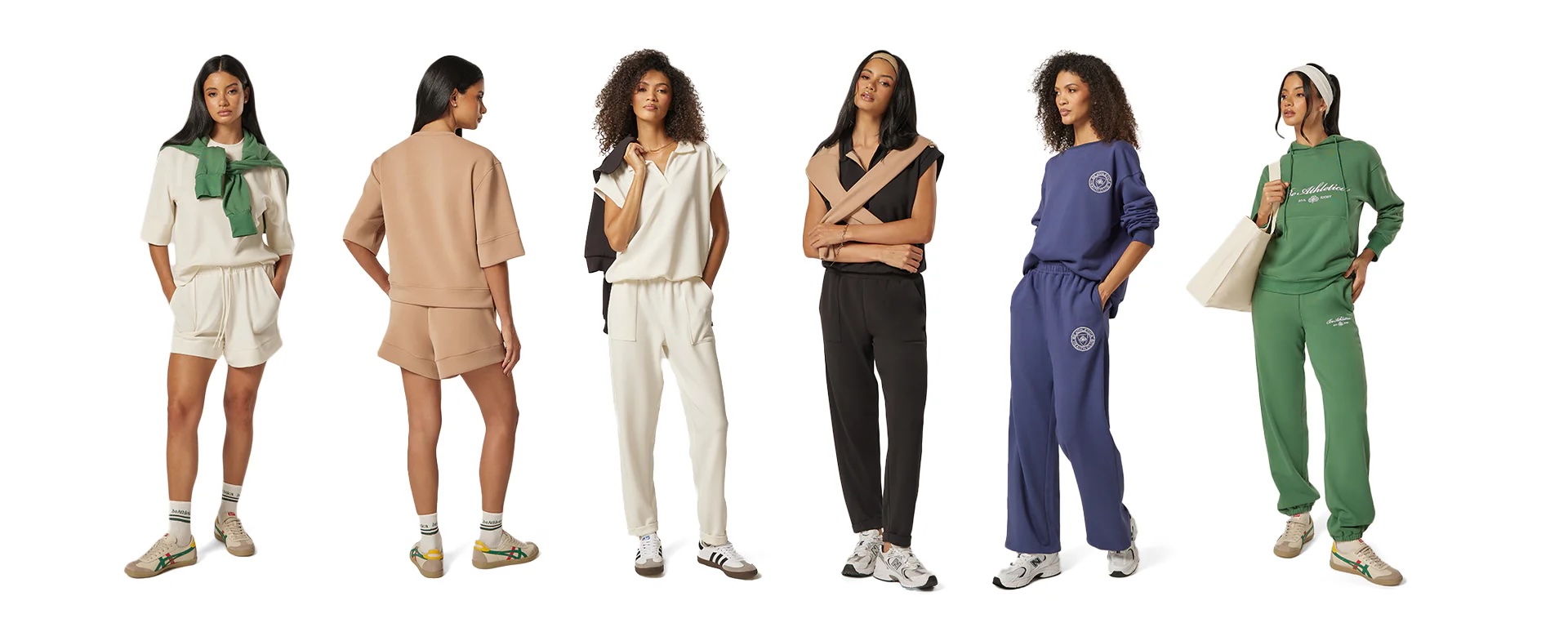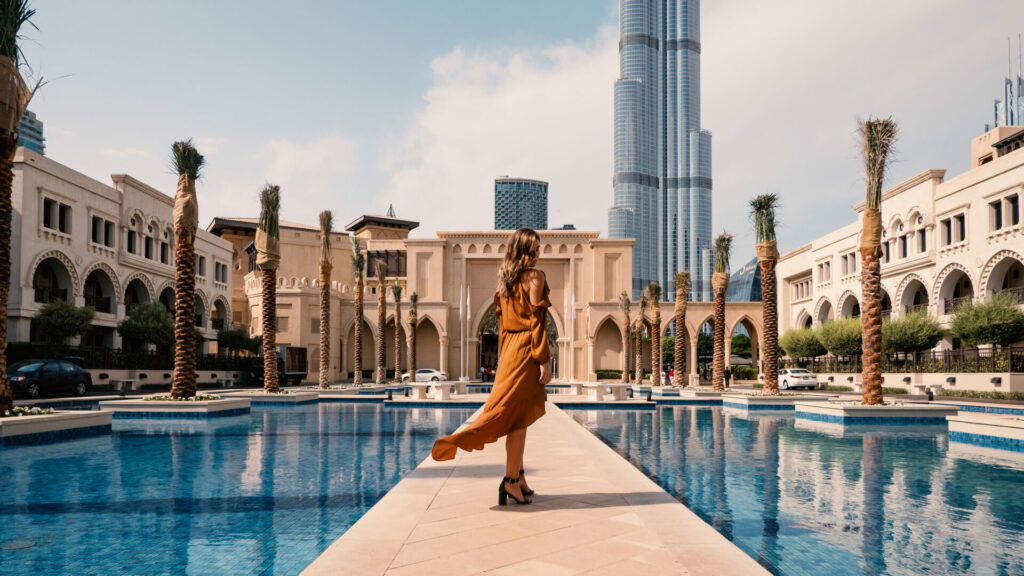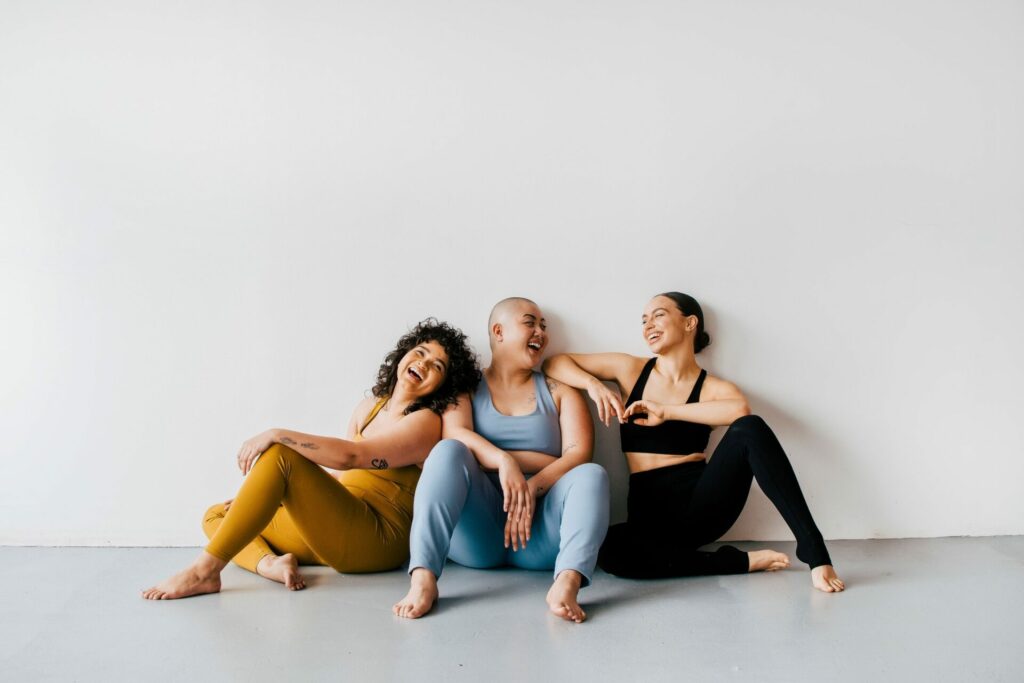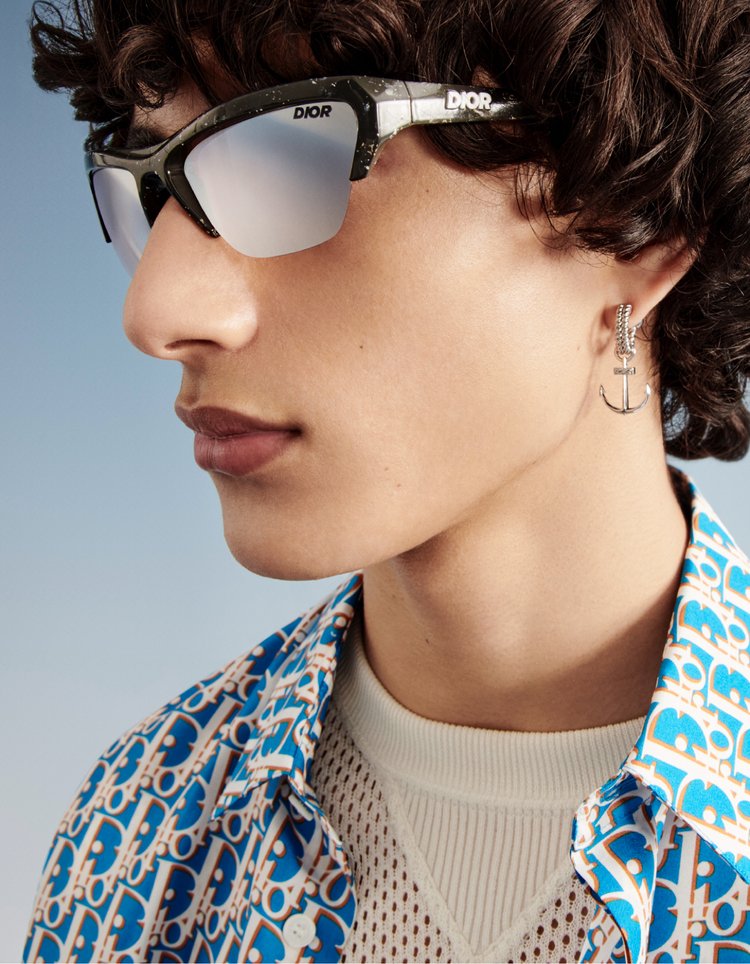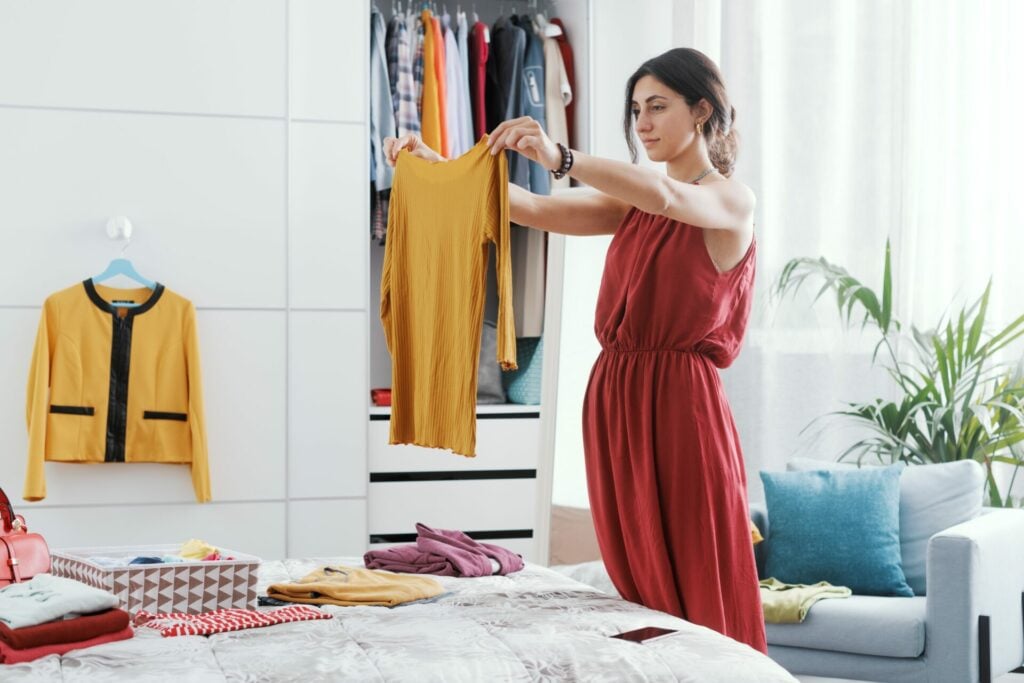Born in the UAE to Indian parents, Gauri Sarma is part of a new generation of fashion entrepreneurs rethinking what activewear can be. In late 2024, she launched beAthletica, a sleek, sustainability-led label with a mission to prove that conscious design, commercial viability, and supply chain transparency don’t have to be mutually exclusive.
Gauri’s fashion journey began at the London College of Fashion before she honed her e-commerce and brand development skills with regional giants including Chalhoub Group and OUNASS. But it was a return to her family’s apparel sourcing business that sparked the idea for beAthletica.
Discovering piles of high-quality dead stock fabric going to waste simply because the quantities were too small for mass production, Gauri saw an opportunity, and ran with it.
From there she created the made-in-UAE, activewear brand beAthletica using upcycled factory materials that would otherwise be destined for landfill. Now shipping across the GCC, Be Athletica is raising the bar for homegrown labels with its blend of mindful manufacturing and modern style and its SS25 collection is set to continue that ethos with 100 per cent reclaimed fabric.
The Ethicalist sat down with Gauri to learn more…
TE: What materials are used in the beAthletica activewear range, and how do you ensure they are sustainably sourced and processed?
Gauri: Right now, the beAthletica range uses a mix of modal, polyester-spandex, non-brushed bamboo rayon, 100 per cent cotton single jersey, and 100 per cent cotton loopback terry.
Most of what we work with is deadstock – fabric that already exists, and would otherwise go to waste. For both the beAthletica FW24 and upcoming SS25 collections, every single style was made from reclaimed fabric. We pick it up ourselves from factories, after checking all the right certifications and making sure we know the fabric’s full backstory. We only go for deadstock made after 2022, that way, we’ve got better visibility, records and can be more confident in how it was made.
It’s not always the easiest route as sourcing this way can be time-consuming, but it’s worth it. We’d rather use what’s already out there than keep spinning up new fabric when the planet’s got plenty to offer. It’s just about being more intentional, without compromising on quality. It’s our job as a brand to work with the fabric and create a style that the customer wants.
‘That’s why I believe the responsibility falls on us as brands to make sustainability the default, embedded into our ethos and values, so that consumers don’t have to make the decision between what works and what’s responsible’
TE: Do you think the next generation of consumers will continue to prioritise sustainability in wellness?
Gauri: I think it’s less about whether they’ll prioritise it and more about expecting it as a baseline. As brands, it’s on us to lead with sustainability and make it part of how we do business every day, not just a nice-to-have. The next generation is smart, aware, and rightly demanding better but I don’t think we’re fully there yet.
In reality, product still speaks louder than values. If something doesn’t perform, the sustainability story won’t matter. That’s why I believe the responsibility falls on us as brands to make sustainability the default, embedded into our ethos and values, so that consumers don’t have to make the decision between what works and what’s responsible.
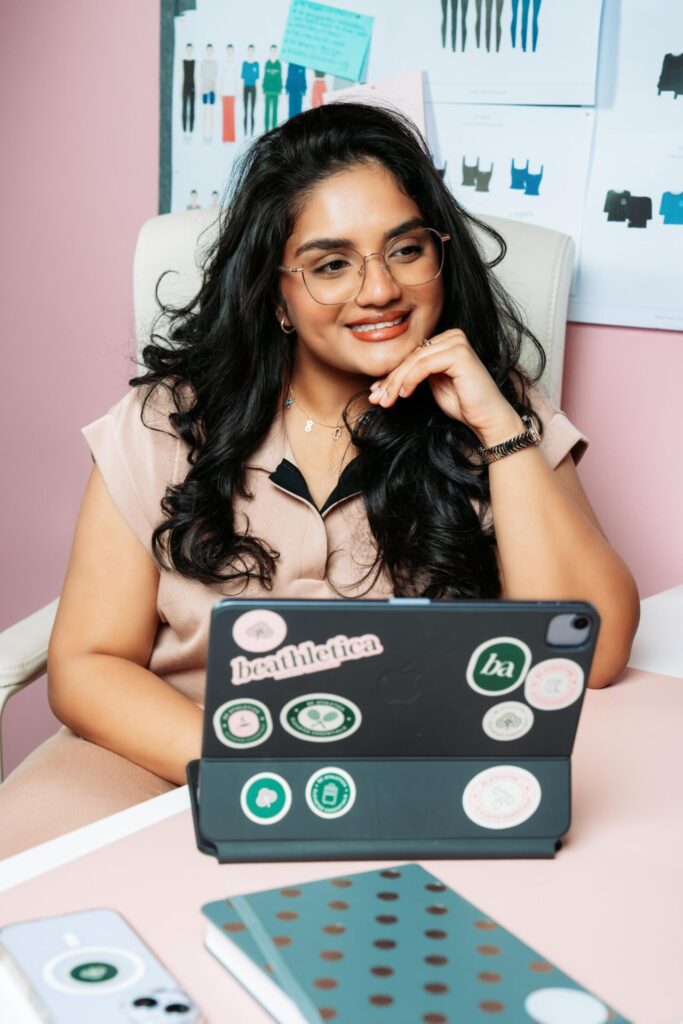
TE: You highlight that your products are ‘Made in the UAE and Turkey.’ How does local manufacturing contribute to your sustainability goals?
Gauri: All the beAthletica clothing and accessories are manufactured right here in the UAE. Local production has been a huge win for us for two key reasons. First, my team and I work in-house and on the ground, from managing reclaimed fabric stock to design, sampling and full-scale production, we have complete visibility over our supply chain. That means no gaps, and full accountability at every step.
Second, it significantly reduces our carbon footprint by cutting out emissions from international shipping or air freight, not to mention slashing logistics costs. Plus, our turnaround times are incredibly responsive. If we need to adjust a fit, we can fix it within a day or two! In typical fast fashion, if a brand isn’t happy with a fit, they might cancel an entire order leading to massive fabric waste, time loss, and financial waste. For us, if something’s not quite right, we simply pull the stock and tweak it. That’s the beauty of local manufacturing, it gives us flexibility and speed to find smart, sustainable solutions.
As for our socks, they’re the only product we manufacture in Turkey, and that’s because I couldn’t perfect the fit and feel myself. Quality always comes first for me, and I partnered with a specialised, state-of-the-art socks factory in Turkey, a country renowned for its garment manufacturing.
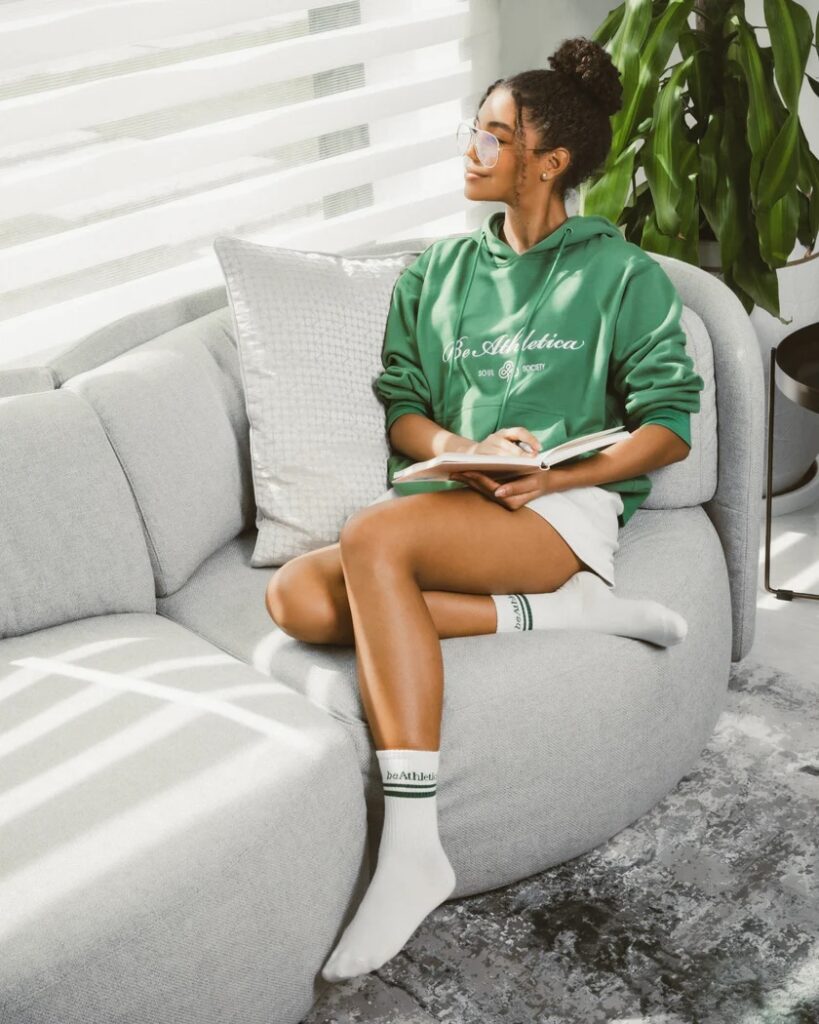
TE: What steps has Be Athletica taken to minimise packaging waste, and are your packaging materials recyclable or biodegradable?
Gauri: Right now, all of our packaging is made from either paper or cardboard, and it’s manufactured locally here in the UAE through a homegrown packaging company. Keeping our supply chain as local as possible is something we try to prioritise and choosing paper over plastic was an easy decision.
That said, durability still matters. We want every order to arrive safely and intact, so our products are individually sealed in recycled plastic bags when they leave the factory. It’s a balance we’re constantly working on, reducing waste where we can, without compromising on the condition your pieces arrive in.
TE: Do you have any sustainability certifications or third-party verifications?
Palak: Yes, we do. Our fabrics come with certifications from Global Organic Textile Standard (GOTS), OEKO-TEX Standard 100, Intertek, and the Global Recycled Standard (GRS). These cover things like organic sourcing, non-toxic dye testing, and the presence of recycled content. We only pick up fabric we have the full history of – including dye test results and certifications – so we can trace exactly where it came from and how it was made. If a fabric includes recycled elements, we always ensure it’s been verified and has passed all the relevant base tests. We keep all the documentation on file, so we know exactly what’s going into every piece we make.
TE: Sustainability aside, comfort and confidence are huge factors in what we choose to wear. What details in your design process help women feel good in your pieces?
Gauri: For us, design language is everything. We follow a ‘sculpted and limited’ approach.
‘Sculpted’ means that even the simplest piece, like a sweatshirt or a pair of leggings, is designed to flatter. We pay close attention to how it sits on the body, how it moves, and how it makes you feel. We play around with stitching, seam placements, and contouring to create shapes that are both comfortable and confidence-boosting. For our new collection, we’re playing around with the placement of our brand icon, for a fun way to just uplift the garment, for example, without adding in so many extra plastic trims, like zips, buttons, etc.
‘Limited’ reflects the way we source our fabrics. Every piece is truly one-of-a-kind. We only produce what we can from the deadstock fabric we find, so once a style is sold out, that’s it. There’s something special about knowing your piece is unique. It doesn’t have to be luxury to feel exclusive, exclusivity can be in your everyday life with beAthletica.
To learn more visit the beAthletica website here

